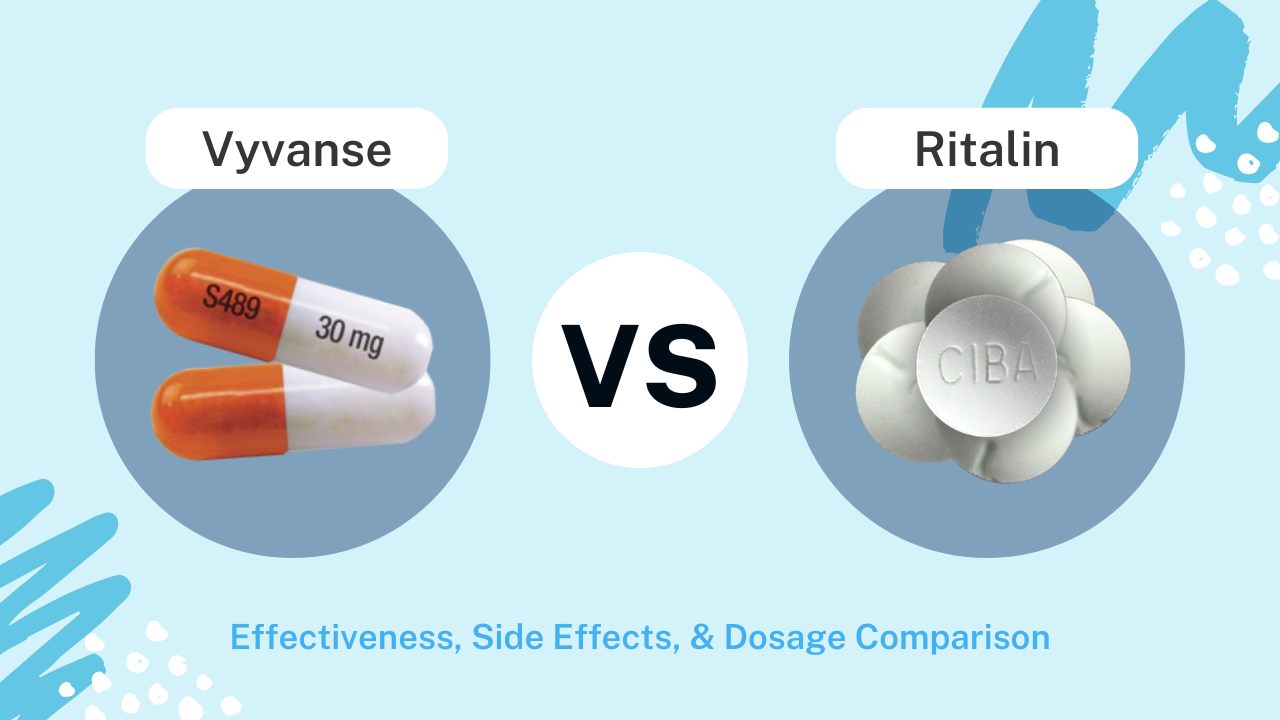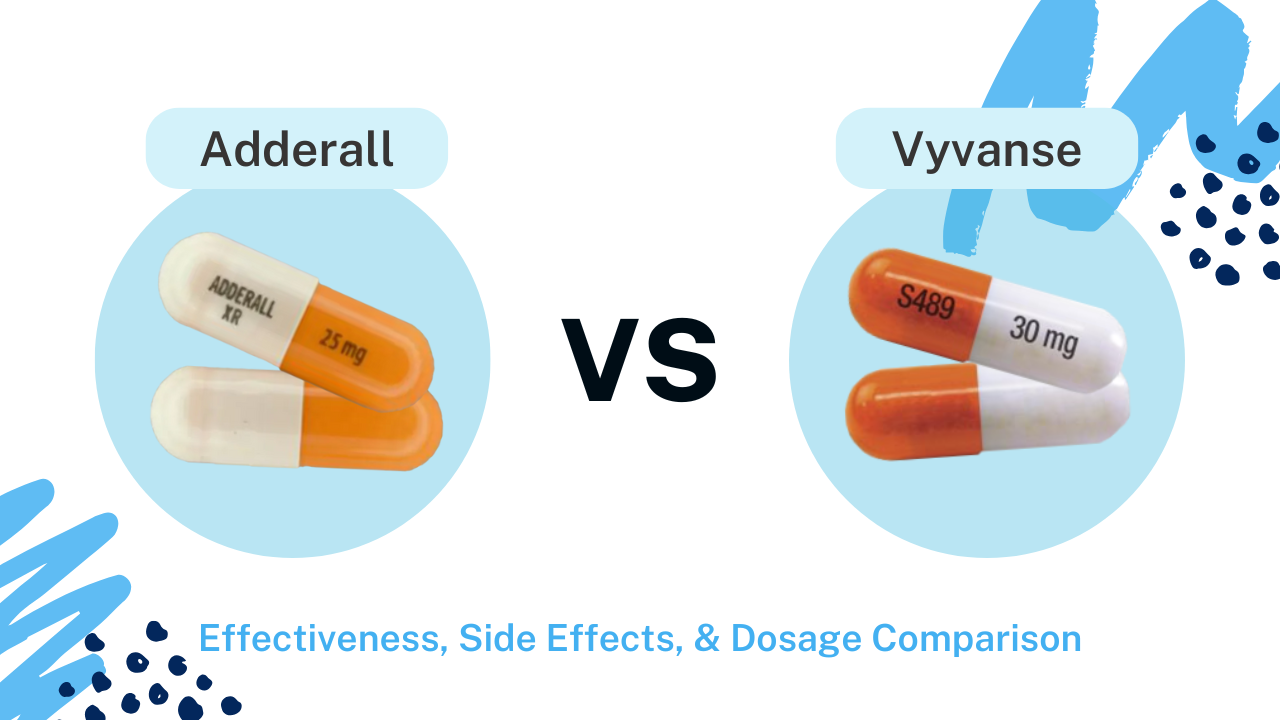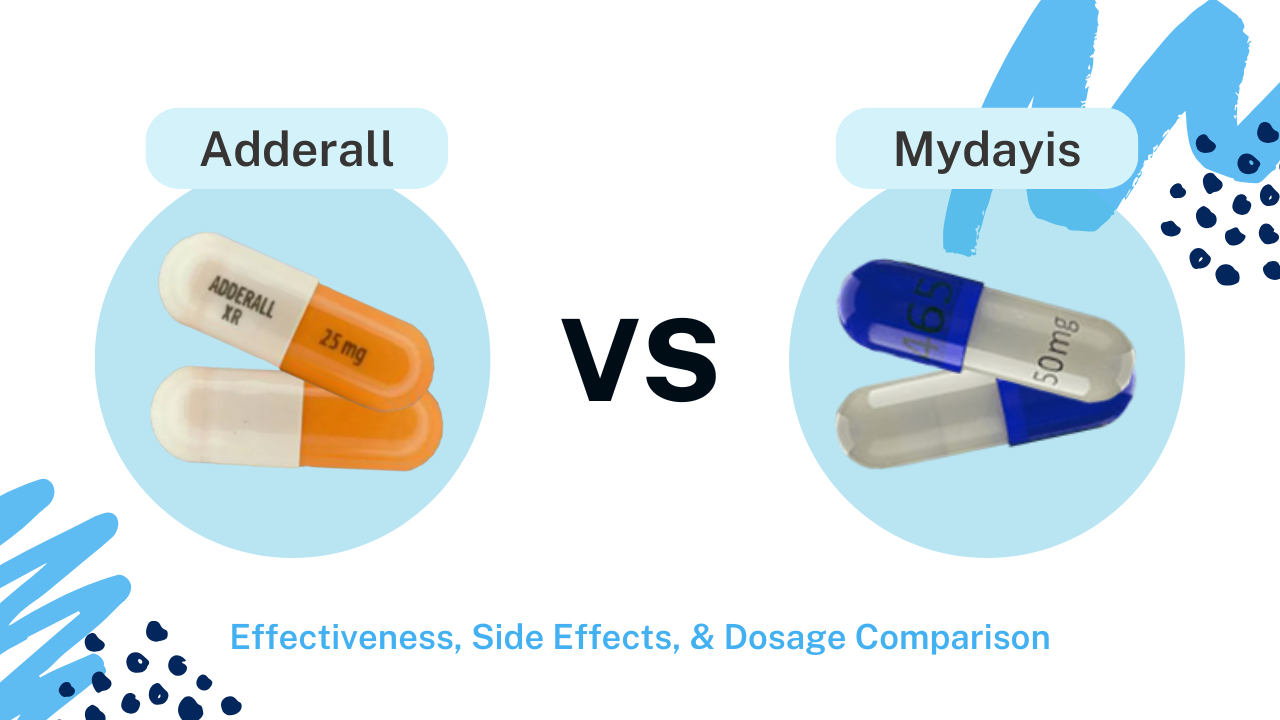Same Day Online ADHD Diagnosis
ADHD assessment?
The Growing Role of Telehealth in ADHD Care
Online ADHD treatment in Texas is rapidly growing. In 2023, behavioral health diagnoses, including attention deficit/hyperactivity disorder (ADHD), accounted for 57% of all telehealth services in the state. 45,347 Texans received telehealth treatment for ADHD that year.
There are many reasons for this increase in telehealth treatment for ADHD, including convenience, flexibility, and more provider access across the state. If you are looking to start ADHD telehealth in Texas, you may be trying to weigh the pros and cons to determine if it's a good fit for your life. This article will cover ADHD telemedicine in Texas, how it works, the pros and cons, what to expect, and more, so you can make an informed decision about your mental health care.
How Online ADHD Diagnosis Works in Texas
ADHD is prevalent in the state of Texas, with around 9% of the state diagnosed. Many people find relief through the use of telehealth services.
From now until December 31, 2025, telehealth flexibility laws permit a patient-provider relationship to be established solely through telehealth. Previously, an in-person requirement was in place for the first appointment, but it has been temporarily waived. The DEA could choose to extend flexibility laws again or permanently in the future.
So let’s go over the process of online ADHD treatment in Texas and see how you get diagnosed.
Initial Assessment/Schedule Your Consultation
The first step in online ADHD treatment in Texas is typically to complete a pre-screening questionnaire. A pre-screening is designed to help mental health providers learn more about your symptoms and determine if you are a good candidate for a full ADHD evaluation. After your pre-screening, you can schedule your appointment for a comprehensive assessment.
Comprehensive Evaluation
Your first actual telehealth appointment will be a comprehensive evaluation with a telemedicine ADHD doctor in Texas. A licensed mental health provider will conduct a formal evaluation to determine if you have ADHD. You'll need to fill out some paperwork, typically available in the patient portal, regarding your medical history, behavioral patterns, school records, and family history information. You'll also need to complete a symptom checklist or rating scale to provide the provider with a starting point during your assessment.
During this evaluation, your provider will ask you questions about your symptoms and any behavioral issues you may be experiencing. They may check to see if you have another mental health disorder, as many symptoms can overlap. The main symptoms that they will be looking for to diagnose you with ADHD will be hyperactivity, focus issues, impulsiveness, and inattention.
You will undergo a thorough evaluation, but it can be much less stressful when you can do it from the comfort of your own home.
Diagnosis and Treatment
After you complete your assessment, the provider will give you the results. If you have ADHD, you will receive a diagnosis letter and a recommended treatment plan. Your provider will work with you to develop a personalized treatment plan tailored to your specific needs. You may start medication, therapy, coaching, or a combination of all these modalities.
The good news is that you can begin your treatment immediately with telehealth appointments. If medication is part of your treatment plan, your provider will send your online prescription to a pharmacy of your choice, and you can schedule appointments for your therapy or coaching.
Follow-Ups
With ADHD treatment, follow-up appointments help ensure a successful recovery. With telehealth in Texas, you can schedule your appointments at your convenience.
At these appointments, your provider will adjust your medication or dosage if necessary and assess your progress with your treatment. During these sessions, it's a good opportunity to let them know about the areas of your life that are improving and where you may still need some help. You'll also work on your symptom management in therapy appointments.
State-Specific Legal Requirements
The Texas Medical Board expects the following state requirements to be met before prescribing controlled substances like Adderall or Ritalin via telehealth:
- Synchronous HIPAA-compliant communication: Telehealth visits in Texas must utilize synchronous audio-visual communication or audio-only communication if audio-visual communication is not feasible.
- E-prescribing: Since 2021, all prescriptions for controlled substances must be sent electronically.
- Texas Medical License: Providers who treat ADHD via telehealth must hold a valid Texas medical license to practice in the State. If prescribing stimulant medications, they must also register with the DEA.
- Established provider-patient relationship: A patient-provider relationship needs to be established before treating ADHD in Texas.
- Obtaining Informed Consent: Providers in Texas must obtain informed consent to provide telehealth ADHD treatment.
- Meeting the standard of care: Online telehealth must meet the same standard of care as traditional in-person treatment.
- Consulting the PDMP: Before prescribing controlled substances such as stimulants, providers must consult the Texas Prescription Drug Monitoring Program (PDMP) to inquire about a patient's prescribing history.
Pros of Online ADHD Treatment in Texas
Let's take a look at some of the pros and cons of online ADHD treatment in Texas, starting with the benefits.
Convenience and Flexibility for Busy Adults
One of the best benefits of telehealth treatment is convenience. Because of controlled substance laws, ADHD medication must be given a new prescription each month, and follow-up care is essential to positive treatment outcomes.
Coordinating in-person traditional care can be challenging due to the busy schedules of both you and your child, as well as the limited availability of healthcare providers. It often involves long wait times, and you may need to take time off work or pull your child out of school just to attend these appointments.
However, with telehealth, you can schedule your appointments conveniently around your busy schedule, adding the flexibility that you need to avoid missing work or school to get treatment for your ADHD.
Broader Access in Rural Areas
Another excellent benefit for many people in the United States, and especially in rural areas in Texas, is that it gives people more access to ADHD treatment. Often, in rural areas, there may be only one or two providers, and possibly no mental health professionals are available. In these cases, you would need to drive long commutes to reach a provider living in more urban areas.
With telehealth options, such as ADHDAdvisor, you gain access to providers who specialize in ADHD treatment from across Texas. You can schedule an appointment with a specialist who may not be located in your area.
Streamlined Scheduling and Follow-Ups
Telehealth offers easy, streamlined scheduling and follow-up appointments. You can schedule your appointments directly in the client portal or on the app, choosing the times that best fit your busy lifestyle. Unlike traditional appointments that often leave little choice, you now have greater control over your appointment times.
Follow-up appointments are a necessary part of ADHD treatment, and with easy scheduling, there's a reduced risk of missing your appointment. Studies show that telemedicine appointments have a 64% higher completion rate than in-person care appointments, leading to a better chance of successful treatment.
Cons and Limitations to Be Aware Of
Now, we'll take a closer look at some of the cons of virtual ADHD care in Texas.
Prescription Limitations for Controlled Substances
Prescriptions for controlled substances via telehealth can only be for 30 days at a time. You must receive a new prescription each month to continue receiving ADHD medications. Right now, in-person evaluations are not needed to get ADHD meds online in Texas. However, laws are always subject to change as the telehealth environment continues to evolve.
Potential Lack of Long-Term Therapeutic Support
There is the potential lack of long-term therapeutic support when using telemedicine for ADHD treatment. For one, without in-person meetings, you risk reducing connection and engagement with therapists. With telehealth, you don't have the opportunity to catch up with your provider outside of a formal setting, which could impact the longevity of your treatment.
Another issue is that with ADHD, therapists are trained to observe behavior and some non-verbal communication that is important for diagnosis may be missed over telehealth technology.
Insurance Coverage Gaps for Some Telehealth Platforms
While telehealth services are continually evolving, a gap remains in insurance coverage for certain telehealth platforms. Medicaid, Medicare, and some private payers have different reimbursement policies and coverage for telehealth services.
Some companies are addressing this by offering a pay-as-you-go pricing structure that can often be significantly cheaper than traditional in-person treatment.
It's also important to note that as telehealth evolves, some insurance policies may also change.
Common Platforms Offering ADHD Care in Texas
Let's take a look at some of the compliant telehealth services in Texas. These include:
- ADHDAdvisor
- Texas Psychiatry Group
- Talkspace
- MEDvidi
- ADHD Online
- Aura MD
- MAVA Behavioral Health
This list is by no means exhaustive. When you research telehealth providers in Texas, you must check to make sure that they are compliant with state and federal laws, work with licensed providers, use HIPAA-compliant technology, and conduct thorough evaluations before prescribing medications.
How ADHD Medication Works Through Telehealth in Texas
Stimulant medications, which are commonly prescribed for ADHD, are classified as Schedule II controlled substances under federal and Texas state law. The DEA gives this classification to stimulants because of their potential for abuse and risk of developing substance use disorder. All providers in Texas who prescribe these medications must check with the PDMP.
Providers must be registered with the DEA to prescribe schedule II stimulants using telemedicine technology. Currently, the DEA has extended telemedicine flexibility through December 31, 2025. Therefore, providers are currently not required to have an in-person consultation first; however, a telehealth consultation is now sufficient.
Schedule II medications are not allowed to be automatically refilled. Therefore, providers in Texas will need to set up a new prescription every month. Providers can technically set up a 90-day supply, but only if they have separate prescriptions each month with future fill dates.
What to Expect: Timeline, Costs, and Follow-Up
Now we’ll look at what you can expect using Texas ADHD telehealth services.
Telehealth ADHD Treatment in Texas Timeline
ADHD treatment in Texas is a streamlined process through telehealth. You will begin with an initial evaluation, followed by diagnosis, a treatment and medication plan, therapy or coaching, and follow-up appointments. Most places offer an easy-to-use scheduling system for follow-up appointments that you can manage right from your phone or computer.
Costs of ADHD Telemedicine Treatment in Texas
Telehealth ADHD treatment is often cheaper than in-person traditional treatment for many different reasons. Most online platforms charge between $100 and $300 per session.
Medication prices can be significantly higher without insurance for brand-name stimulants; however, off-brand prescriptions are more affordable. Some platforms charge a monthly subscription fee for follow-up appointments and therapy sessions. ADHDAdvisor offers a monthly membership fee of $130, which includes sessions, 24/7 messaging, and assistance with medication prescriptions.
Insurance Coverage and Telehealth Treatment
Insurance companies vary in what they cover regarding telehealth treatment. Many insurance plans will cover telemedicine treatment, so it's essential to check with your insurance company to determine your specific coverage.
Insurance should cover the costs of medications. Some platforms do not accept insurance but offer an affordable rate or fee. It is essential to research platforms and verify your insurance coverage before getting started, so you can select the right platform that best suits your needs.
FAQs
Can you legally get Adderall online in Texas?
Yes, in Texas, you can receive a legal prescription for Adderall as long as it is medically necessary. You first need to have a formal evaluation and be diagnosed with ADHD, and your provider would need to deem that Adderall is an important part of your treatment plan.
How do follow-up visits work with telehealth?
You can schedule follow-up visits online through the client portal, app, or by phone. During the visit, your provider will assess your condition and address any symptoms you may be experiencing. They can also address any questions you have about your treatment or any side effects you may be experiencing. If you are on medication, they can send over a prescription to your pharmacy. Follow-ups via telehealth are convenient and can be done right from the comfort of your own home.
Will my employer or school accept a telehealth diagnosis?
Telehealth services are held to the same standards as in-person visits. As long as you receive a virtual note from a licensed healthcare professional, it's a valid note. However, each employer or school may have its own set of rules concerning virtual sick notes, so it's a good idea to check with your employer or school to find out in advance.
Conclusion: Choosing the Right Care for You
Selecting a specific treatment path for ADHD is a crucial decision. If you are considering telehealth for your ADHD in Texas, you can simply weigh the pros and cons of both telehealth and in-person and see what's right for your mental health journey. It really depends on your unique needs and lifestyle. Telehealth can be a game-changer for individuals with busy schedules, offering the flexibility and convenience they need.
You also want to ensure you work with a legitimate telehealth ADHD treatment provider. At ADHDAdvisor, we are compliant with federal and state laws. We can connect you with licensed mental health professionals who understand the nuances of ADHD and know about the challenges that you face. To schedule an appointment with one of our licensed professionals in Texas, take our screening questionnaire now, and we can help you find relief.























